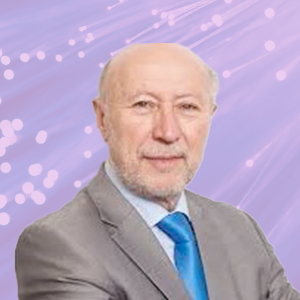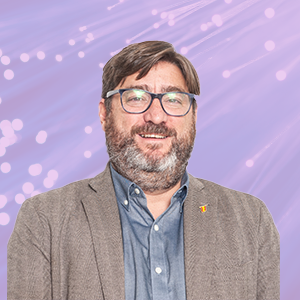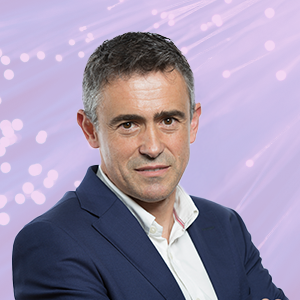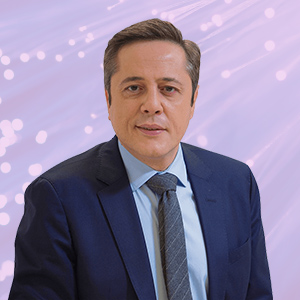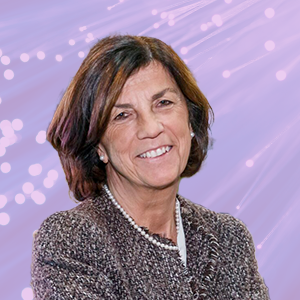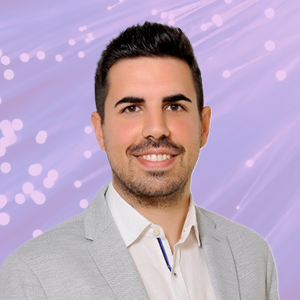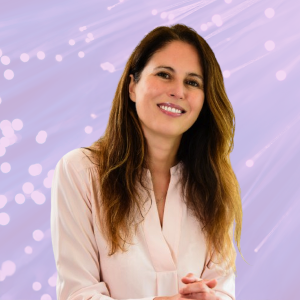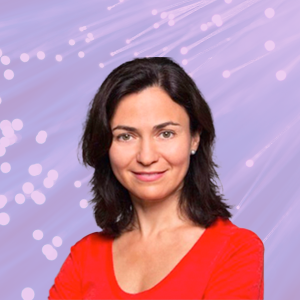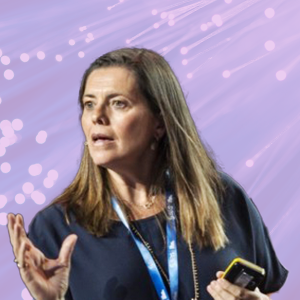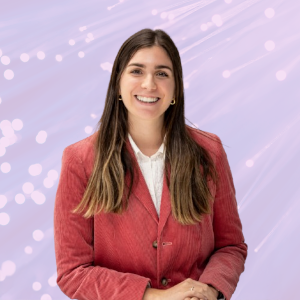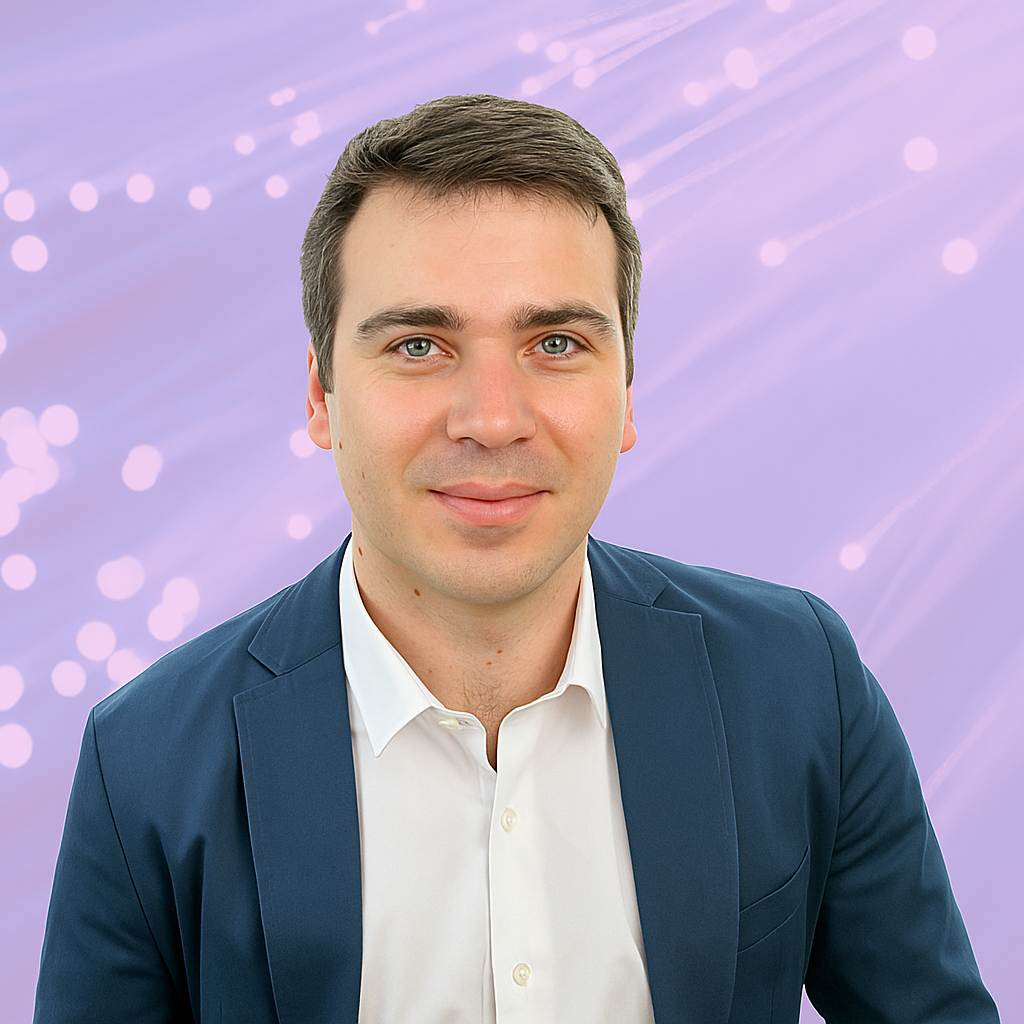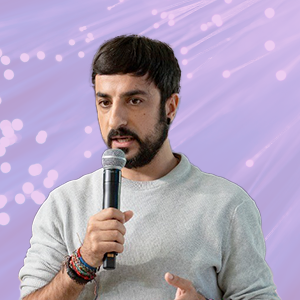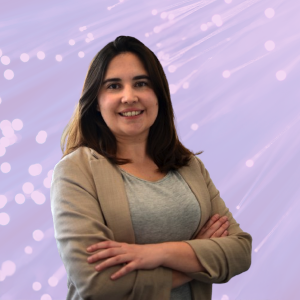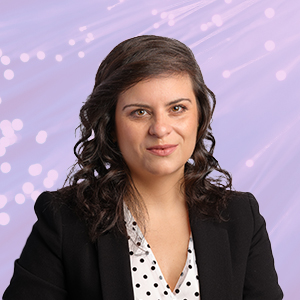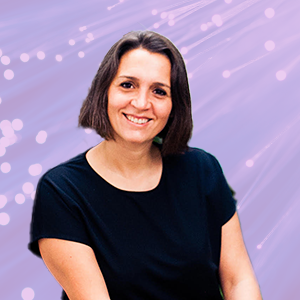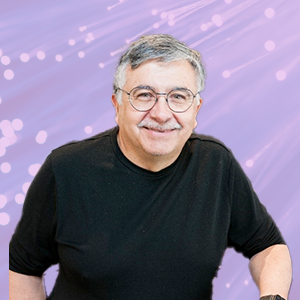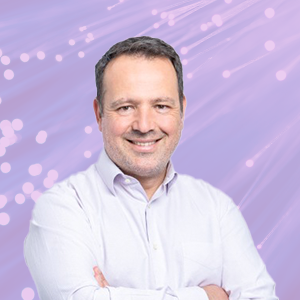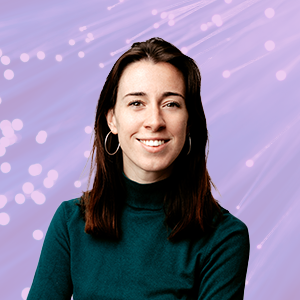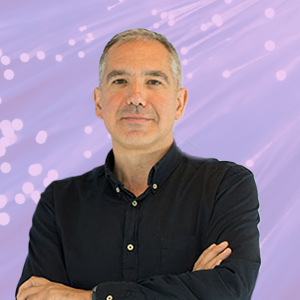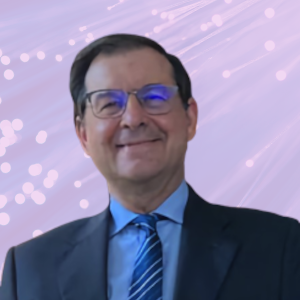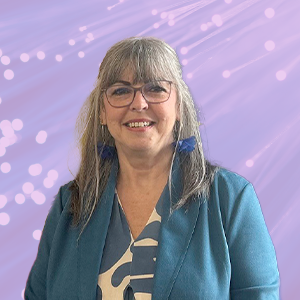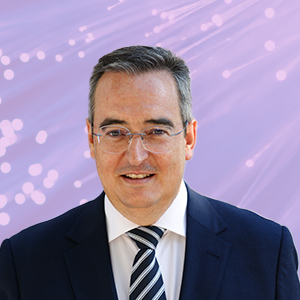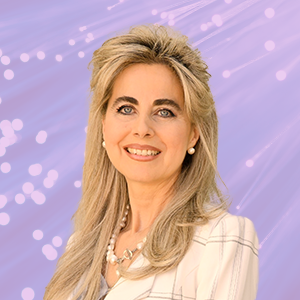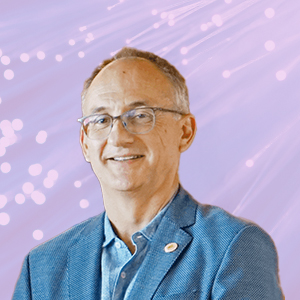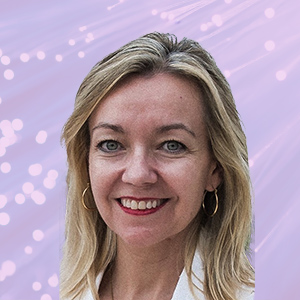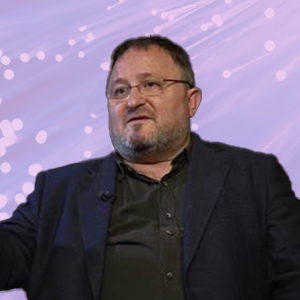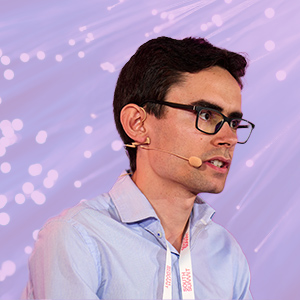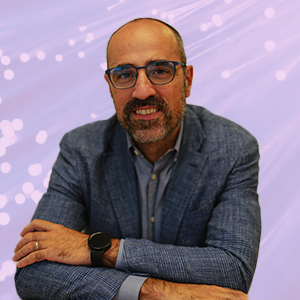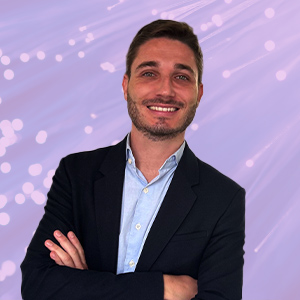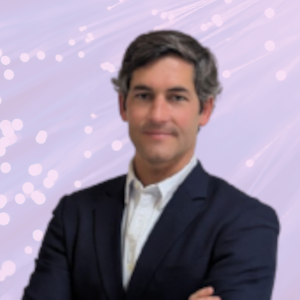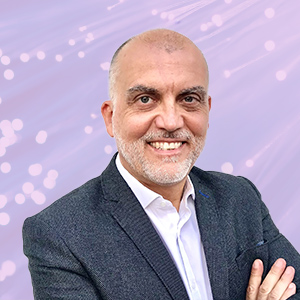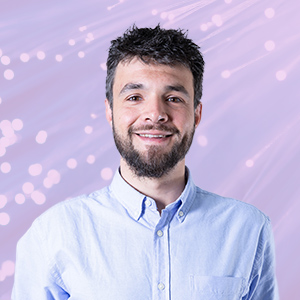The global and borderless data economy was the topic addressed on June 19 at the Madrid Scientific Park Foundation (FPCM), in the Meetup Data Economy: Presentation of Ocean Protocol, organized by Nektiu as brand ambassadors in Spain, in collaboration with the Digital Economy Institute (ICEMD) of ESIC and the FPCM, where they are incubated.
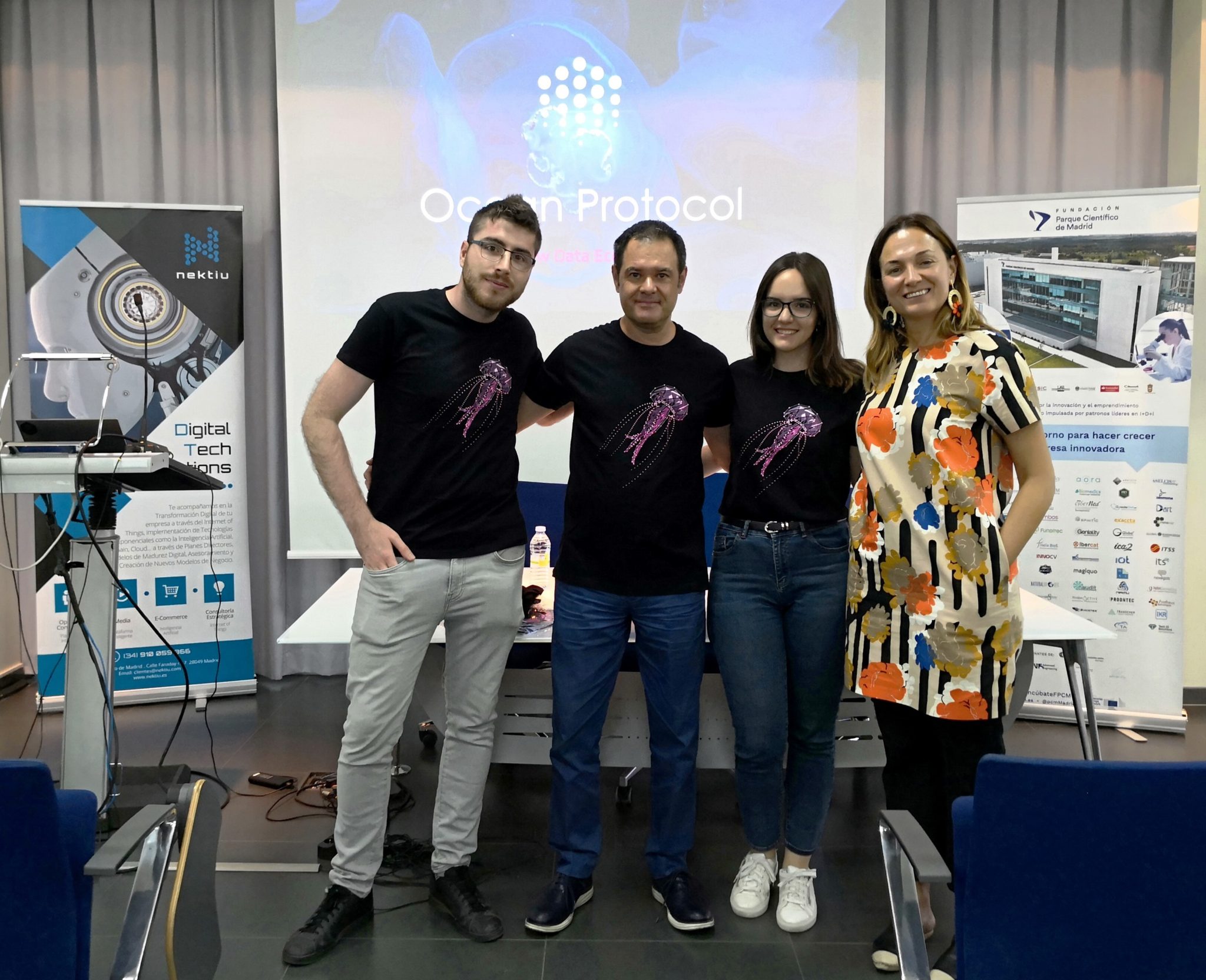
The demand for data has increased significantly in recent years, especially with the advent of artificial intelligence, but only a small group of organizations control its access. Precisely, the mission of Ocean Protocol is to unlock data to facilitate access, using a set of technologies known as Blockchain.
“Our goal is to eliminate friction in data exchange and equalize access so that it can be applied to advanced industries and solve social problems. It’s time for people to regain control and actively participate in an open data economy .” (Trent McConaghy, founder of Ocean Protocol).
Summary of the event: A New Data Economy
The Meetup Data Economy: Presentation of Ocean Protocol was opened by Alberto de Torres, CEO of Nektiu and director of the advanced program in IoT and Artificial Intelligence at ICEMD of ESIC. After the presentation by Irene Vallejo, founding member of the Ocean Protocol team, co-founder of GivingStreets and mentor at Startupbootcamp IoT, Pedro Gutiérrez, -Ocean developer- discussed practical aspects and some technological keys of the Ocean Blockchain Protocol.
In the words of Irene Vallejo: “Ocean Protocol is a data economy with a vision of global impact.” The new data economy consists of different technological layers involving various agents operating from the crypto unit where the nodes are located, to companies or entities that already operate in the environment and are being integrated with the technology to develop specific data markets.
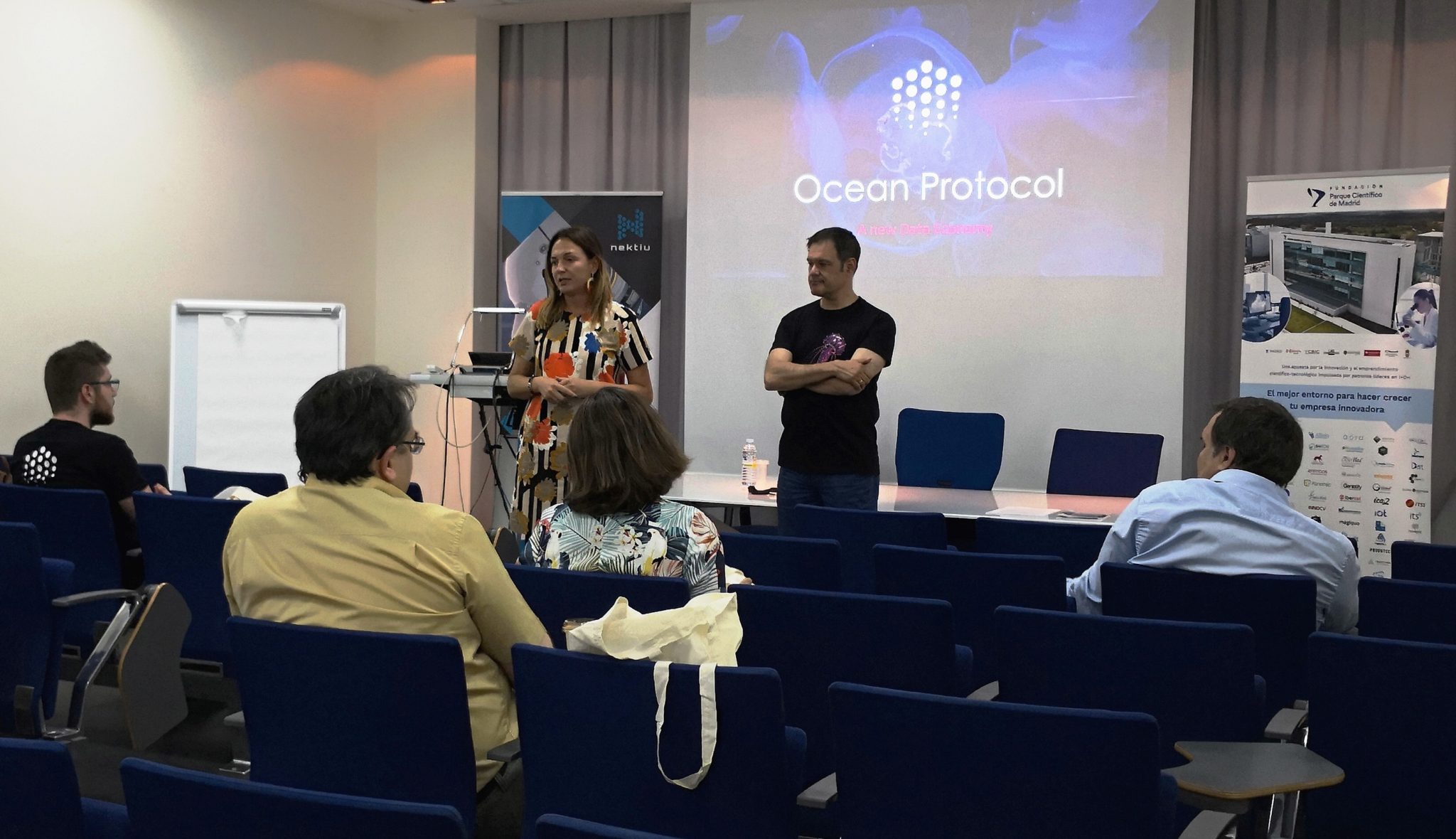
In this new ecosystem, new roles and models can be generated. “We are in a process of experimentation,” Vallejo pointed out. Additionally, there are positions, roles, or specific profiles that can be executed by startups, governments, or companies, and the protocol transforms them into value that generates economic benefits. “There are opportunities for both startups and established companies because if you learn this convergence of technologies now, you’ll be among the first in the future,” added Alberto de Torres.
The core of the entire protocol is in Ethereum, a global open-source platform for decentralized applications where code can be written to control digital value, execute exactly as programmed, and be accessible anywhere in the world. Ethereum can be used by any platform and can help experiment with use cases. In the case of Ocean Protocol, Pedro Gutiérrez explained that “it allows developing a Smart Contract and putting it into a non-centralized network, enabling anyone to use it to access data or transactions through a small cryptographic barrier securely with a protected identity.” Ocean Protocol has a low-level Service Agreement, immovable, secure, and auditable, which serves to make service agreements or physical contracts between companies/individuals to buy, access, or retrieve data from a client or company, computing them on Blockchain.
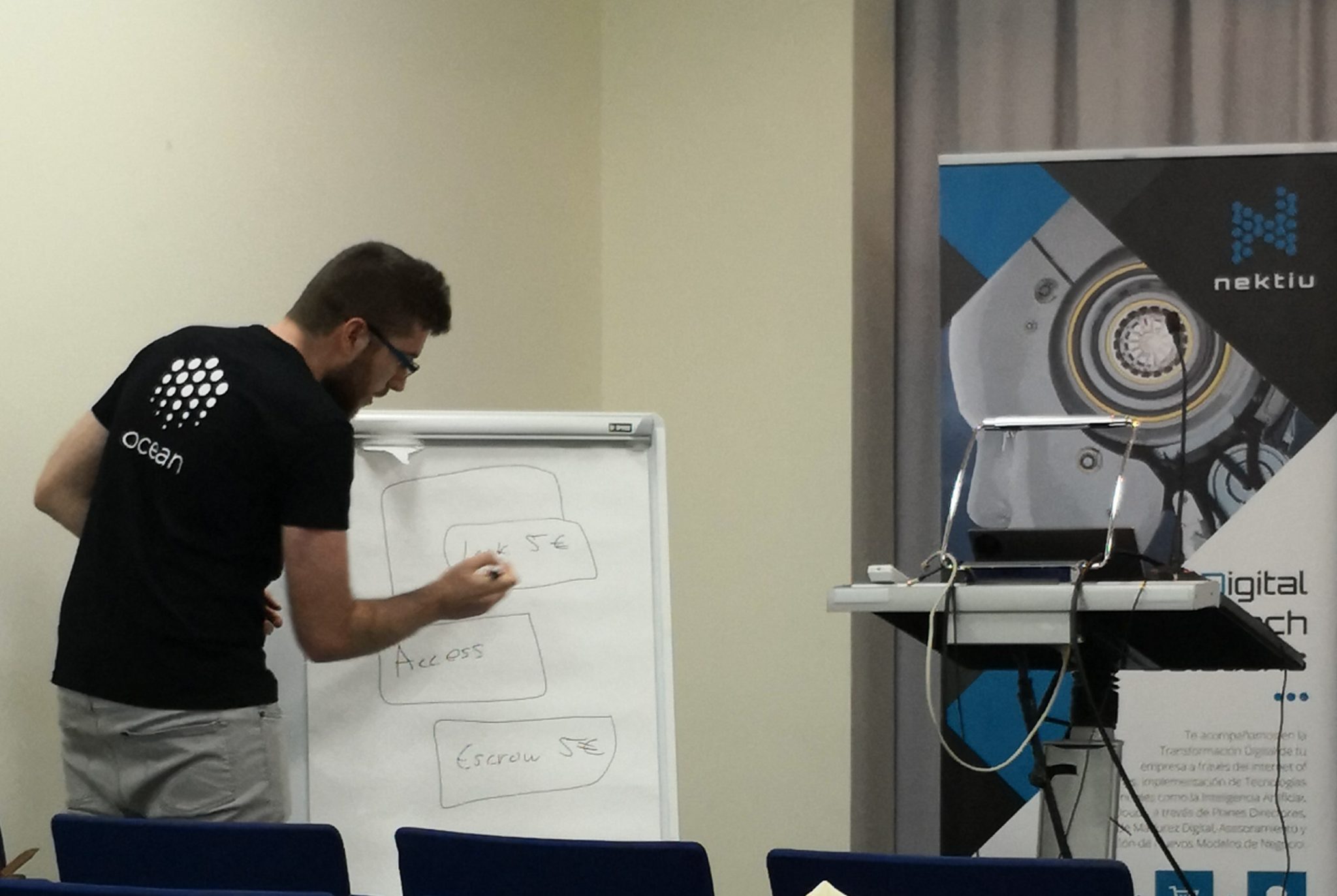
The conclusion of the event is that today there are some problems that can be solved with this new data economy, such as governance (one of the most important) or the ability to make data buy-sell transactions in a secure and automated way, guaranteeing their traceability, transparency, and privacy so that owners maintain control of their assets and access a wide range of markets and services.
>>About Nektiu<<
Nektiu, installed at the Madrid Scientific Park Foundation (FPCM) since 2018, was born to offer technological solutions based on artificial intelligence that add value to your business, thanks to more competitive and efficient services.
The company develops projects based on technological convergence applying artificial intelligence as the epicenter of the business, along with other technologies such as Blockchain or Internet of Things. Always through trend monitoring and innovation.




